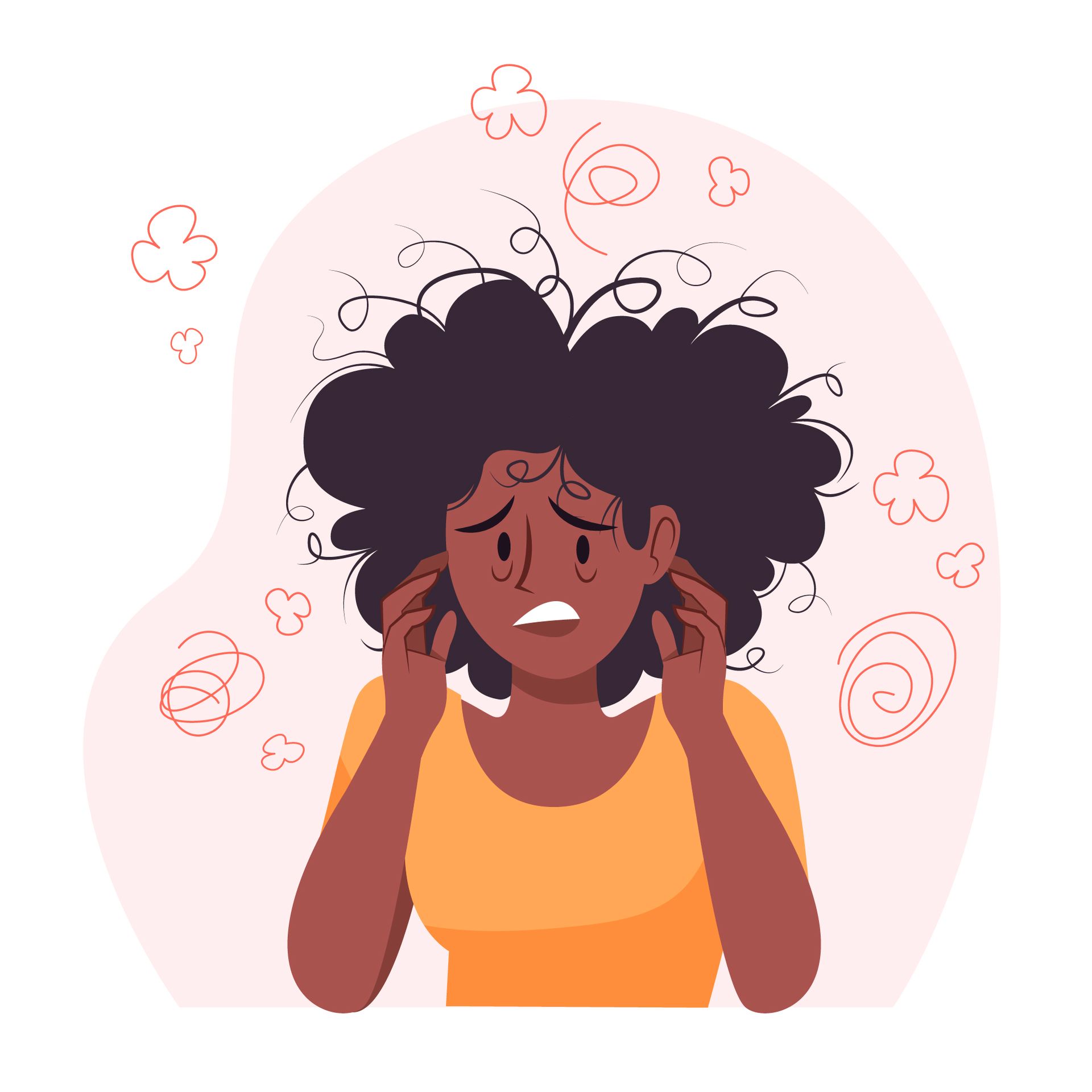How to Know If You're in a Trauma-Bonded Relationship: Learn the Signs | Real Talk Therapy Corning NY

Introduction
Something feels off in your relationship, but you can't quite put your finger on it. One day your partner is loving and sweet, the next they're cold or cruel. You find yourself making excuses for their behavior, walking on eggshells, or feeling like you can't imagine life without them even when they hurt you.
If this sounds familiar, you might be experiencing trauma bonding. A trauma bond is an unhealthy emotional attachment that forms between someone and their abuser through cycles of abuse followed by affection or kindness. It's not love, it's a survival response that can make it incredibly difficult to leave even when you know the relationship isn't good for you.
At Real Talk Therapy in Corning, NY, I understand how confusing and painful trauma bonding can be. As someone who believes in real talk about difficult topics, I want you to know that recognizing the signs of trauma bonding is the first step toward healing and regaining control of your life.
Article Outline
- What is trauma bonding and how does it develop
- The cycle of abuse that creates trauma bonds
- Common signs you might be in a trauma bond relationship
- How trauma bonding differs from healthy attachment
- Why it's so difficult to break free from trauma bonds
- The role of love bombing in creating trauma bonds
- How gaslighting strengthens the trauma bond
- Why you might feel like you can't leave the relationship
- Steps to break the bond and heal
- Creating a safety plan if you're ready to leave
- How therapy can help with recovering from trauma bonding
- Building healthy relationships after trauma bonding
What is Trauma Bonding and How Does It Develop
Trauma bonding is a complex psychological phenomenon where a victim develops a strong emotional bond with their abuser. This bond forms through intermittent reinforcement, unpredictable cycles of punishment and reward that create a powerful attachment similar to Stockholm syndrome.
The trauma bond often develops gradually. It might start with love bombing, where your partner overwhelms you with attention, gifts, and affection. This intense positive attention creates a strong initial attachment. Then comes the shift, criticism, withdrawal, or abusive behavior that leaves you confused and desperate to get back to those good times.
Trauma bonding occurs when your nervous system becomes addicted to the relief that comes after periods of stress or abuse. Your brain starts to associate the abuser with both danger and safety, creating a confusing mix of fear and attachment that can be incredibly difficult to break.
The Cycle of Abuse That Creates Trauma Bonds
The cycle of abuse typically follows a predictable pattern that strengthens the bond over time. It usually starts with a tension-building phase where you might feel like you're walking on eggshells, trying to avoid triggering your partner's anger or disappointment.
This is followed by an incident of abuse, which could be physical, emotional, or psychological. The abuser may use tactics like yelling, threatening, isolating you from friends, or making you feel worthless. After the abuse comes what's called the "honeymoon phase" apologies, promises to change, gifts, or extreme kindness.
This cyclical pattern of abuse followed by affection creates a trauma bond because your brain becomes focused on getting back to the good times. The unpredictable nature of when kindness will come makes it even more addictive, similar to gambling addiction.
Common Signs You Might Be in a Trauma Bond Relationship
One major sign of trauma bonding is feeling like you can't live without your partner, even when they consistently hurt you. You might find yourself defending their behavior to friends and family, or making excuses for why they act the way they do.
You may notice that you've lost your sense of self in the relationship. Maybe you used to have strong opinions, hobbies, or friendships, but now your life revolves entirely around your partner's moods and needs. This loss of identity is a common sign that trauma bonding may be occurring.
Other signs to look for include feeling grateful when your partner is simply "normal" to you, constantly trying to prove your worth to them, or feeling like you're the problem when conflicts arise. You might also experience intense anxiety when you think about leaving, even though you know the relationship is unhealthy.
How Trauma Bonding Differs from Healthy Attachment
In a healthy relationship, attachment grows through consistent care, respect, and emotional safety. Both partners feel secure expressing their needs and boundaries. Love doesn't depend on walking on eggshells or constantly proving yourself worthy of affection.
Healthy attachment includes trust, mutual respect, and the freedom to be yourself without fear of punishment or withdrawal of love. Partners in healthy relationships can disagree without one person becoming abusive or threatening to leave. There's predictable kindness and care, not intermittent reinforcement.
The key difference is that healthy attachment makes you feel more like yourself, while trauma bonding makes you lose your sense of self. In healthy relationships, you feel supported in growing and maintaining connections outside the relationship. Trauma bonds often involve isolation from support systems.
Why It's So Difficult to Break Free from Trauma Bonds
Breaking a trauma bond is incredibly difficult because it's not just an emotional attachment, it's a neurological one. Your brain has been conditioned to associate your abuser with survival, creating powerful chemical responses that make leaving feel dangerous or impossible.
The abuser may use tactics that make it hard to leave, such as threatening suicide, promising to change, or using financial control. They might also alternate between being wonderful and terrible in ways that keep you hoping things will get better if you just try harder.
Additionally, trauma bonding can lead to a damaged sense of self-worth. You might believe you don't deserve better treatment, or that no one else would want you. These beliefs, often reinforced by the abuser's words and actions, make it difficult to imagine life outside the relationship.
The Role of Love Bombing in Creating Trauma Bonds
Love bombing is an intense period of attention, affection, and adoration that often happens at the beginning of abusive relationships. Your partner might shower you with gifts, constant texting, declarations of love, and plans for the future very early in the relationship.
This overwhelming positive attention creates a powerful initial attachment and sets an unrealistic standard for what "love" feels like in the relationship. When the love bombing inevitably stops and abusive behavior begins, you're left chasing the high of those early days.
Love bombing is particularly effective because it targets our natural desire for connection and makes us feel special and chosen. When this intense attention is withdrawn, it creates a trauma bond as you desperately try to earn back that level of care and attention.
How Gaslighting Strengthens the Trauma Bond
Gaslighting is a form of psychological manipulation where the abuser makes you question your own reality, memory, or perceptions. They might deny saying hurtful things, claim you're "too sensitive," or insist that situations happened differently than you remember.
This constant reality distortion makes you doubt your own judgment and become increasingly dependent on the abuser's version of events. Over time, gaslighting erodes your confidence in your ability to assess situations accurately, making you more likely to accept the abuser's narrative about the relationship.
Gaslighting strengthens the trauma bond because it makes you feel like you can't trust yourself, increasing your dependence on the abuser for validation and reality-checking. This psychological dependence becomes another chain that makes leaving feel impossible.
Why You Might Feel Like You Can't Leave the Relationship
The victim may feel trapped for many practical and emotional reasons. You might worry about financial survival, especially if the abuser has control over money or has isolated you from work opportunities. There might be children involved, pets you're afraid to leave behind, or threats of violence if you try to go.
Emotionally, the trauma bond creates a powerful fear of abandonment that can feel stronger than the fear of staying. Your nervous system has been trained to see the abuser as your source of safety, even though they're also the source of danger. This creates a confusing internal conflict that can paralyze decision-making.
You might also fear that you won't be believed, especially if the abuser is charming in public or has convinced others that you're the problem. The shame and isolation that often accompany abusive relationships can make reaching out for help feel impossible.
Steps to Break the Bond and Heal
Breaking a trauma bond is a complex process that usually requires professional support, but there are steps you can start taking today. First, begin to educate yourself about trauma bonding and abuse patterns. Knowledge can help you see your situation more clearly and realize you're not alone.
Start rebuilding connections with people outside the relationship, even in small ways. This might mean reconnecting with old friends, joining a support group, or simply having conversations with trusted family members. These connections help you remember who you are outside of the trauma bond.
Consider working with a licensed mental health professional who understands trauma bonding. They can help you process the complex emotions involved in these relationships and develop strategies for healing and regaining control. Taking steps toward professional support is often crucial for successfully breaking free from a trauma bond.
Creating a Safety Plan If You're Ready to Leave
If you're considering leaving an abusive relationship, having a safety plan is essential. This plan should include practical steps like gathering important documents, saving money in a separate account, and identifying safe places you can go. The National Domestic Violence Hotline (1-800-799-7233) can help you create a detailed safety plan specific to your situation.
Your safety plan should include emergency contacts, a packed bag with essentials kept in a safe location, and plans for pets or children. It's important to think through the safest time and way to leave, as leaving can sometimes be the most dangerous time in an abusive relationship.
Consider reaching out to local domestic violence resources or shelters, even if you're not ready to leave yet. They can provide guidance, support, and practical assistance when you are ready to take that step. Remember, you don't have to have everything figured out perfectly, survivors of domestic violence have successfully escaped even very dangerous situations.
How Therapy Can Help with Recovering from Trauma Bonding
A mental health professional who understands trauma bonding can be invaluable in your healing process. They can help you understand how the trauma bond formed, work through the complex emotions involved, and develop healthy coping strategies for moving forward.
Therapy can help you rebuild your sense of self that may have been lost in the trauma bond relationship. This includes rediscovering your values, interests, and boundaries. A good therapist will help you understand that experiencing trauma bonding doesn't mean you're weak, it means you're human.
At Real Talk Therapy, we understand that recovering from trauma bonding takes time and patience. We believe in meeting you where you are and supporting you through the complex process of healing and regaining control. Our approach is genuine and practical, focusing on helping you build the life you deserve.
Building Healthy Relationships After Trauma Bonding
After experiencing trauma bonding, it's normal to feel confused about what healthy relationships look like. You might find yourself either avoiding relationships entirely or feeling drawn to similar patterns. Learning to recognize healthy attachment takes time and often requires professional support.
Healthy relationships are built on consistent respect, trust, and emotional safety. There's no walking on eggshells, no need to constantly prove your worth, and no cycles of abuse followed by intense affection. Good partners encourage your growth and maintain their own identity while building something together.
Take time to heal before entering new romantic relationships. Focus on rebuilding friendships, pursuing interests that make you feel like yourself, and developing a strong sense of your own worth. When you do feel ready for a romantic relationship, trust your instincts and don't ignore red flags, even small ones.
Summary: Key Takeaways About Trauma Bonding
• Trauma bonds form through cycles of abuse followed by affection, creating an addictive pattern that's difficult to break
• Common signs include defending your abuser, losing your sense of self, and feeling like you can't live without someone who hurts you
• Love bombing and gaslighting are common tactics used by abusers to create and strengthen trauma bonds
• Breaking free from a trauma bond is possible, but usually requires professional support and a safety plan
• Healing involves rebuilding your sense of self, reconnecting with support systems, and learning what healthy relationships look like
• Recovery takes time, and it's important to be patient with yourself as you heal from these complex experiences
• Creating a safety plan and accessing resources like the National Domestic Violence Hotline can provide crucial support
Ready to Break Free and Start Healing?
If you're in a trauma bond relationship, you deserve support and understanding as you navigate this difficult situation. You don't have to figure this out alone, and seeking help is a sign of strength, not weakness.
I'm Natali Gonzalez at Real Talk Therapy in Corning, NY, and I understand how complex and painful trauma bonding can be. Our practice specializes in helping people heal from difficult relationships and rebuild their sense of self. We believe in providing genuine, down-to-earth support that honors your strength and resilience.
If you're ready to start healing or need support in planning your next steps, schedule your first appointment today. You deserve relationships that make you feel safe, valued, and free to be yourself.
Important Disclaimer
This blog post is for educational purposes only and is not intended to diagnose, treat, cure, or prevent any medical or mental health condition. The information provided should not be used as a substitute for professional medical advice, diagnosis, or treatment.
If you are in immediate danger, please call 911 or go to your nearest emergency room. For domestic violence support, contact the National Domestic Violence Hotline at 1-800-799-7233 (available 24/7).
If you are experiencing thoughts of self-harm, suicidal ideation, or are in crisis, please seek immediate help by calling 988 (Suicide & Crisis Lifeline), going to your nearest emergency room, or contacting emergency services.
SHARE THIS POST:
I'm Natali Gonzalez, LCSW
Founder of Real Talk Therapy
Lorem ipsum dolor sit amet, consectetur adipiscing elit, sed do eiusmod tempor incididunt ut labore et dolore magna aliqua. Ut enim ad minim veniam, quis nostrud exercitation ullamco laboris nisi ut aliquip ex ea commodo consequat.
Our Recent Post:
Reclaim Your Peace of Mind
Book your free consultation now and discover the support you deserve.





